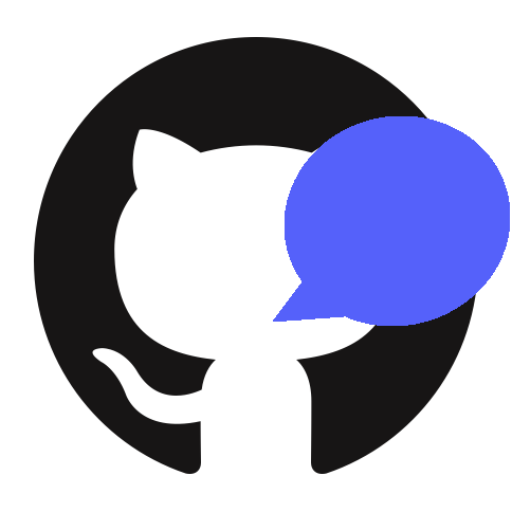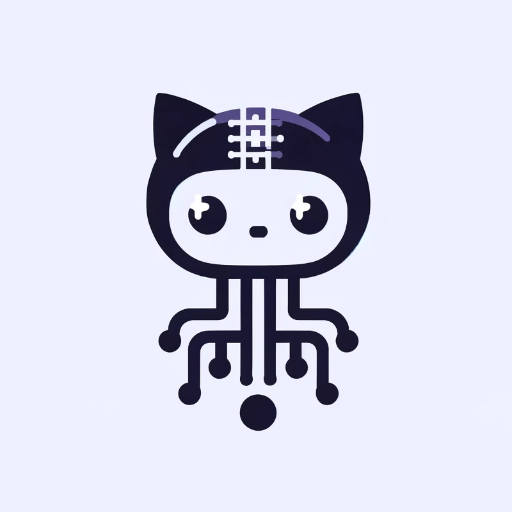のGitHub-GitHub management and automation.
AI-powered GitHub repository management.
⭐️ Explain the best practices for project setup
✏️ Write a GitHub actions pipeline for my project
🧩 Best strategies for branching and tags
💡 Teach me a useful skill or trick in GitHub
Related Tools
Load More
AskTheCode - Git Companion
Provide a GitHub repository URL and ask about any aspect of the code.

ChatCody - GitHub, GitLab Assistant
GitHub / Lab - empowered assistant, designed for comprehensive repository interaction - from code contributions to read/write operations, reviews and advanced task automation.

Chat with Code | Repo Assistant for Githu b
Provides both general and specific guidance on publicly accessible Github Repositories and their contents.

Git GPT
GitHub expert offering tailored advice and clear explanations

GitHubs Search
I find the top 10 GitHub repositories for any search term.

Git Expert ㆍGitHub & GitLabㆍ
4.7 ⭐️ㆍAdvanced Git assistant, command generator, and repository management copilot. Trained with the latest knowledge about Git, GitHub and GitLab.
20.0 / 5 (200 votes)
Introduction to GitHub
GitHub is a web-based platform used for version control and collaborative software development. Designed to facilitate code sharing, collaboration, and project management, GitHub leverages Git, a distributed version control system. Its primary purpose is to streamline the development process by providing tools for version tracking, code review, and team collaboration. For example, developers can work on the same project from different locations, merging their changes seamlessly and maintaining a history of every modification.

Main Functions of GitHub
Version Control
Example
Using Git, developers can track changes to their codebase over time.
Scenario
A team of developers working on a large software project can see who made specific changes, revert to previous versions if necessary, and understand the history of the project’s development.
Collaboration
Example
Developers can create pull requests to propose changes to the codebase.
Scenario
When a developer finishes a new feature or bug fix, they can create a pull request. Other team members can review the changes, discuss potential issues, and approve the merge into the main codebase.
Project Management
Example
Issues and project boards help teams organize and prioritize their work.
Scenario
A development team uses GitHub Issues to track bugs and feature requests. They use project boards to organize these issues into sprints, ensuring a structured workflow and clear priorities.
Ideal Users of GitHub
Software Developers
Developers benefit from GitHub’s version control and collaboration features, enabling efficient code management and team collaboration.
Project Managers
Project managers use GitHub to track project progress, manage tasks, and facilitate communication between team members, ensuring projects stay on schedule and meet their goals.

Detailed Guidelines for Using のGitHub
1
Visit aichatonline.org for a free trial without login, no need for ChatGPT Plus.
2
Sign up with your email to create an account and verify your email address.
3
Set up your GitHub repository by creating a new repository and configuring your project settings.
4
Clone your repository to your local machine using Git commands to start managing your codebase.
5
Start collaborating by creating branches, making commits, and using pull requests to integrate changes.
Try other advanced and practical GPTs
Tara
AI-Powered Writing Simplified

ニュース予測くんNeo
AI-powered insights at your fingertips.

English Test Maestro
AI-Powered English Test Practice and Learning

Promptie The Prompt Pro
AI-powered prompt engineering made easy.

SMLE Destroyer
AI-Powered SMLE Exam Mastery

Voice Engine Text To Speech
AI-Powered Text to Speech Conversion

PyGame Mentor
AI-Powered Python Game Development Mentor

Dragonfly
AI-Powered Insights for Every Query

Kotlin
AI-powered Kotlin development assistance

付强三段式
AI-driven content rewriting for originality.

物語メーカー【睡眠導入バージョン】
AI-Generated Sleep Stories for Better Rest

美国老师
AI-powered tool for mastering English.

- Documentation
- Workflow Automation
- Issue Tracking
- Code Management
- Collaborative Development
Frequently Asked Questions about のGitHub
What is のGitHub?
のGitHub is a specialized tool designed to assist with the creation, management, and maintenance of GitHub repositories, offering comprehensive support for collaborative development and automation workflows.
How do I create a new repository on のGitHub?
To create a new repository, log in to your GitHub account, navigate to the repositories section, click on 'New', and fill out the necessary details such as repository name and visibility settings before clicking 'Create repository'.
Can のGitHub help with automation and CI/CD?
Yes, のGitHub can guide you in setting up GitHub Actions to automate workflows, including continuous integration (CI) and continuous delivery (CD), ensuring efficient and streamlined development processes.
What are some best practices for using のGitHub?
Best practices include maintaining clear commit messages, using branches for feature development, regularly merging and reviewing pull requests, and keeping documentation up to date for better project management.
How can I manage issues and enhancements using のGitHub?
You can manage issues and enhancements by using GitHub's issue tracking system, where you can label, prioritize, and assign tasks, facilitating effective communication and project tracking among contributors.